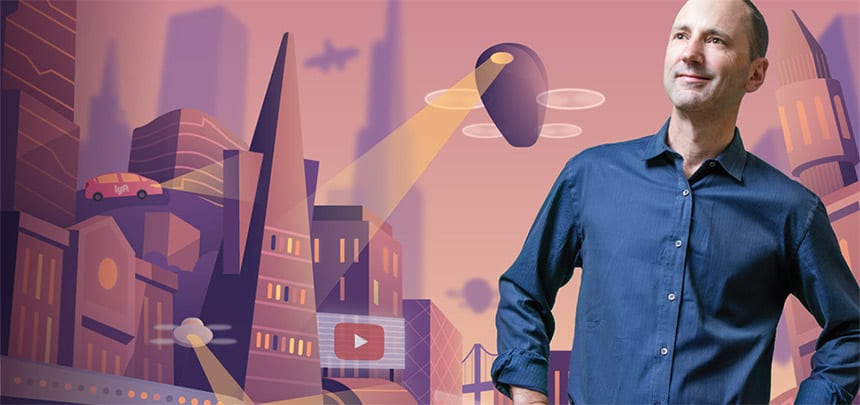
Check out technology’s stunning development over the past two decades, and you’ll see David Estrada ’93 pop up at some game-changing moments. Throughout his remarkable career, he’s helped usher in new technologies that have had a transformative impact on our social and professional lives.
As associate general counsel and just the second attorney hired at YouTube, Estrada helped transform the company’s outlaw reputation for airing copyrighted material without consent by bringing content owners to the negotiating table. In doing so, he established a new revenue-sharing model, and later helped negotiate a deal with Apple to include the YouTube app on the first iPhone—the only third-party app featured on that revolutionary device.
As legal director at Google X, Estrada worked with Nevada officials to make it the first state to authorize the operation of self-driving cars. He then helped pass similar legislation in California and Florida. Ten or so other states have since followed suit, and now governments worldwide are working to create national legal frameworks around autonomous vehicles.
As vice president of government relations at Lyft, Estrada played a vital role in preventing cities and states from shutting down the fledgling ride-sharing service by helping them pass regulations that created a new category of transportation. His work led to the passage of about 30 state laws and 30 more city regulations to make ride-sharing legal.
And now, as chief legal officer and head of public policy at Kitty Hawk—which will release its first personal electric aircraft to the public by the end of 2017—Estrada is working to build a regulatory framework in which a new generation of vehicles could literally take flight.
Read more about this visionary lawyer, and his uncanny knack for helping to shape the world’s tech revolution, in the cover story of the new issue of Transcript, Berkeley Law’s annual magazine.